Managing the responsibilities associated with EICR testing is important for both business owners and commercial landlords. It’s a critical part of my role to guarantee tenant safety by preventing electrical hazards. I’m committed to meeting all compliance requirements and won’t shirk my landlord obligations.
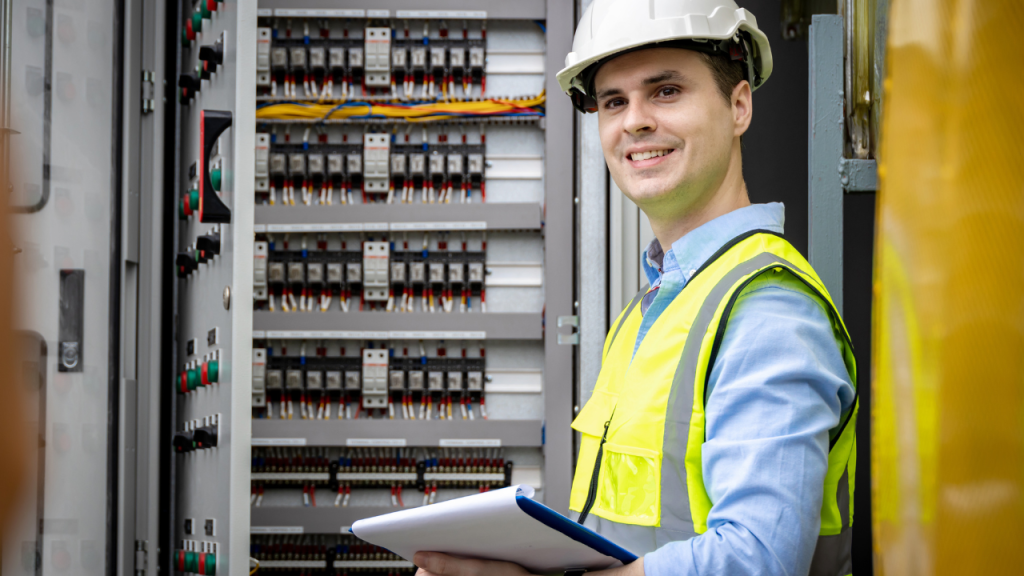
As a landlord, I’m legally bound to guarantee the safety of my tenants. This includes regular EICR testing. It’s not just about ticking a box, it’s about providing a safe living environment and preventing risks. I understand the potential dangers of electrical hazards and am determined to protect my tenants from them.
Compliance requirements are a responsibility I take seriously. I keep up to date with the latest requirements and ensure my properties meet them. I’m well aware of the severe consequences of non-compliance, including legal penalties and invalidated insurance claims.
Risk prevention is at the forefront of my duties. I arrange for regular EICR tests to be conducted by qualified engineers. If a hazard is found, I’m prompt in arranging for remedial work. It’s about maintaining a safe environment and liberating my tenants from potential dangers. That’s what being a responsible landlord means to me.
Key Roles in EICR Compliance
In the domain of EICR compliance, there are several key roles that I, as a landlord, must effectively perform to guarantee the safety and well-being of my tenants. My primary responsibility is to guarantee compliance enforcement. This involves regularly scheduling EICR inspections and acting promptly on any identified issues.
I’m also responsible for implementing safety measures. This means I must make sure all electrical installations in the property are safe and compliant with the relevant standards.
Another key role I play is tenant protection. I must make sure that the electrical installations in the property are safe for use by the tenants. Additionally, I must make sure that any potential hazards are identified and addressed promptly.
Finally, when hazards are identified, I must take appropriate remedial actions. This can involve repairing or replacing faulty electrical installations.
To summarize, my roles revolve around compliance enforcement, safety measures, tenant protection, hazard identification, and remedial actions.
Legal Obligations for EICR
Understanding the legal landscape for EICR can seem challenging, but it’s important to grasp that these obligations are in place to guarantee the safety of all parties involved. The legal requirements are clear and are designed to uphold safety regulations, ensuring all commercial properties are safe for use.
- Legal requirements: These mandate that all commercial properties must have an electric installation condition report (EICR).
- Safety regulations: They ensure that all electrical installations and appliances are safe and fit for use.
- Compliance standards: These include adherence to regulations and guidelines set out by the electrical safety and regulation bodies.
- Responsibility guidelines: These outline the roles and responsibilities of landlords and commercial property owners.
- Inspection frequency: Regular inspections, usually every five years, are required to ensure continued compliance and safety.
In essence, the responsibility for EICR on commercial property falls largely on the property owner or landlord. It’s critical to make sure that all legal requirements, safety regulations, compliance standards, and responsibility guidelines are adhered to. The inspection frequency must also be maintained to guarantee the safety of all occupants.
Timing and Consequences of EICR Testing
When it comes regarding the timing and consequences of EICR testing, there’s a lot to take into account. The importance of scheduling can’t be overstated. Regular, timely inspections not only fulfil legal obligations but also keep tenants safe. Delays can have serious impacts. If an electrical fault goes unnoticed, it may lead to dangerous situations like fires or electrocution.
The consequences of non-compliance are far-reaching. Financial implications include hefty fines and potential lawsuits, which can have a major impact on a business’s bottom line. In addition, neglecting EICR testing could invalidate insurance policies, leaving you exposed to more financial risks.
The risks of neglect don’t end there. Beyond the financial fallout, non-compliance can tarnish your reputation, making it harder to attract and retain tenants. Additionally, you’re putting lives at risk, which is a moral failing beyond any legal or financial consequence.
Financial Advantages of EICR Compliance
Beyond the crucial aspect of safety, complying with EICR regulations also offers significant financial advantages. It may initially seem like an extra expense, but I’ve discovered that it’s a savvy investment that pays off in many ways.
- Cost savings: Regular EICR testing can identify potential electrical faults before they escalate into expensive repairs or catastrophic failures. It’s a classic case of ‘prevention is better than cure.’
- Risk reduction: By ensuring electrical safety, I’m also reducing the risk of costly accidents and the potential for litigation. No one wants to face a lawsuit because they neglected their electrical maintenance.
- Safety enhancement: A safer environment means less downtime due to accidents or electrical failures. That’s less disruption to my business operations, translating to more productivity and higher profits.
- Compliance benefits: Meeting EICR regulations keeps me on the right side of the law. I avoid hefty fines or penalties for non-compliance, which is always good for my bottom line.
- Financial gains: By maintaining my property’s electrical integrity, I’m also preserving or even enhancing its market value.
Regulatory Changes for Rental Properties
Did you know recent regulatory changes now mandate immediate EICR testing for many rental properties? Yes, you heard it right. The move is geared towards guaranteeing tenant safety and it’s a step in the right direction, I say. It’s about time that compliance regulations were tightened to safeguard renters from potential electrical hazards.
Now, what does this mean for landlords? The landlord obligations have increased, but it’s all about guaranteeing the wellbeing of their tenants. They’re now required to have EICR testing done before their property is rented out. It’s not just a moral responsibility, it’s now a legal one. And while it may seem like a hassle, it’s essential in preventing any electrical mishaps that could potentially endanger lives.
These rental property changes are shaking things up in the industry. But it’s change for the better. The new regulations are paving the way for safer rental homes, which is something I know we all want. So, let’s embrace these changes and work together to guarantee the safety and security of all tenants.
EICR Certification Costs

While the new regulations for rental properties undeniably bring about increased safety, they also introduce the question of cost, specifically the price of obtaining an EICR certificate. As the owner of a commercial property, you’re likely wondering about the cost breakdown involved in the certification process.
- The cost of an EICR certificate can vary widely, depending on the size and complexity of your property’s electrical installations.
- The inspection standards set by safety regulations might require more detailed inspections, which could increase the cost.
- Remedial work, if necessary after the inspection, could add to the total cost, but remember, this is about ensuring safety, not just compliance.
- The certification process involves a qualified engineer conducting the inspection, and their fees are part of the cost.
- Despite the costs, the compliance benefits can’t be overlooked. They range from avoiding hefty non-compliance fines to ensuring the safety of your property and its occupants.
You’re not just spending money; you’re investing in the long-term safety and integrity of your property. Remember, the cost of non-compliance, both financial and reputational, can far exceed the cost of an EICR certification.
Benefits of Regular EICR Inspections
Regularly scheduling EICR inspections offers numerous benefits, including early detection of electrical issues, ongoing compliance with safety regulations, and potential long-term cost savings. The safety benefits can’t be overstressed; these checks can identify hazards before they become major issues, effectively reducing risk and promoting preventive maintenance.
As a property owner, I’ve found that the compliance advantages of consistent EICR inspections are invaluable. They guarantee that my properties meet all regulatory standards, liberating me from the worry of potential legal repercussions. Plus, demonstrating compliance can also be a selling point, showing potential tenants or buyers that the property is well-maintained and safe.
Risk reduction is another major benefit. By catching potential issues early, I reduce the risk of electrical fires or other dangerous situations. This not only protects my investment, but also the safety of my tenants.
Frequently Asked Questions
What Specific Qualifications Should the Electrician Performing the EICR Have?”
The electrician conducting the EICR should have mandatory training, industry-specific certification requirements met, and professional expertise. They must uphold industry standards and hold valid electrician accreditation. It’s essential for ensuring reliable and safe results.
Are There Any Exceptions to the Five-Year EICR Testing Rule for Commercial Properties?”
As a commercial property owner, I’m responsible for EICR. There aren’t any exceptions to the five-year rule. Non-compliance risks penalties, invalidates insurance, and impacts property valuation. EICR is vital for safety and proper documentation.
Does the EICR Testing Also Cover Emergency Lighting and Fire Alarm Systems in Commercial Properties?”
As a commercial property owner, I’m responsible for EICR testing. However, it doesn’t cover emergency lighting or fire alarms. They’re governed by separate regulations, emphasizing the importance of thorough safety measures in any commercial property.
What Happens if the EICR Test Identifies Non-Compliance but the Landlord or Business Owner Disputes the Findings?”
If an EICR test reveals non-compliance, I’d challenge it via a dispute resolution process. However, ignoring safety risks could lead to legal consequences. A second opinion might verify initial findings, ensuring compliance and safety.
Can a Tenant or Employee Request an EICR Test if They Suspect the Electrical Installations Aren’t Safe?”
As a tenant, I can request an EICR test if I suspect unsafe installations. It’s part of my rights for safety. However, the cost is usually the landlord’s responsibility due to legal safety regulations.
Conclusion
In closing, as a landlord or business owner, you’re legally obligated to guarantee electrical safety via regular EICR inspections. Ignoring this can lead to legal repercussions and endanger occupants. Plus, staying compliant can bring financial benefits and peace of mind.
Remember, these inspections should be done by competent professionals and in line with the recommended frequency. So, stay informed, stay safe, and make EICR compliance a priority in your commercial property management strategy.



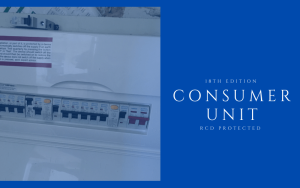
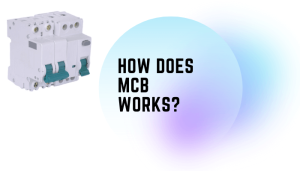

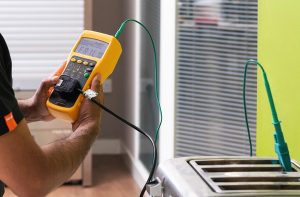
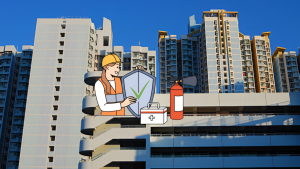
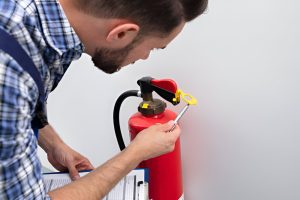
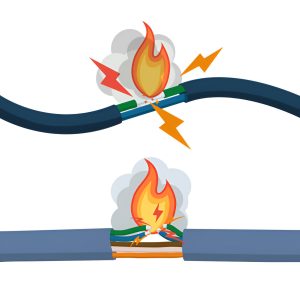

2 thoughts on “who is responsible for eicr on commercial property”
I’ve been visiting this site for years, and it never fails to impress me with its fresh perspectives and wealth of knowledge. The attention to detail and commitment to quality is evident. This is a true asset for anyone seeking to learn and grow.
Fantastic read! I was especially impressed by the depth provided on the topic, offering a perspective I hadn’t considered. Your insight adds significant value to the conversation. For future articles, it would be fascinating to explore more to dive deeper into this subject. Could you also clarify more about the topic? It caught my interest, and I’d love to understand more about it. Keep up the excellent work!